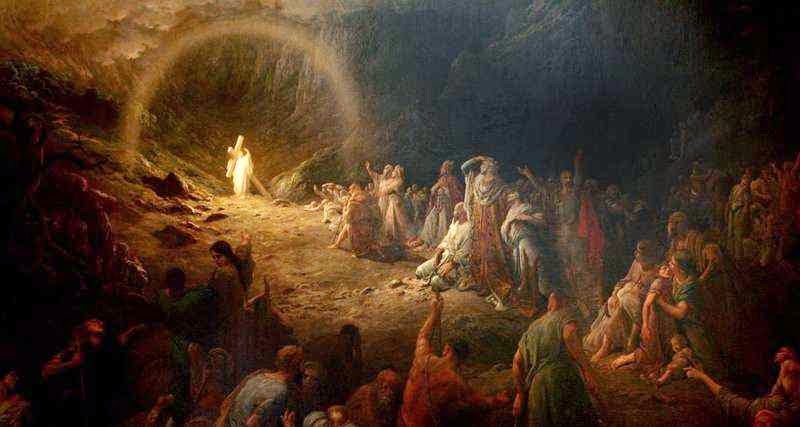Question: “Who were the spirits in prison?”
Answer: The “spirits in prison” are mentioned in the context of what Jesus did in the time between His death and resurrection. First Peter 3:18–20 says, “He was put to death in the body but made alive in the Spirit. After being made alive, he went and made proclamation to the imprisoned spirits—to those who were disobedient long ago when God waited patiently in the days of Noah while the ark was being built.” Note that Jesus’ body was dead and awaiting resurrection, but He was spiritually alive during the time that He visited the spirits in prison. As background, please read our article on “Where was Jesus for the three days between His death and resurrection?”
We know four things about the spirits mentioned in 1 Peter 3:19. They are incorporeal, they are imprisoned, their sin was committed before the Flood, and Jesus visited the place of their captivity to make an announcement to them. Who exactly these spirits are has been the subject of some speculation through the years.
First, let’s look at the word spirits. It is a translation of the Greek word pneumasin, a form of the word pneuma, which means “air, breath, wind.” It is used in the New Testament to refer to angels (Hebrews 1:14), demons (Mark 1:23), the spirit of Jesus (Matthew 27:50), the Holy Spirit (John 14:17), and the spiritual part of man (1 Corinthians 2:11). While the Bible makes it clear that human beings possess spirits (Hebrews 4:12), the Bible never refers to human beings as simply “spirits.” In contrast, God the Holy Spirit, angels, and demons are never said to possess spirits; they are spirits. So the standard meaning of the word spirits in the phrase spirits in prison argues for the spirits’ being something other than human beings.
The spirits in prison cannot be the holy angels, because they have not sinned and are not imprisoned. And, if the spirits in prison are not the spirits of deceased human beings, that leaves us with one option—the spirits in prison are demons. Now, it is clear that not all the demons are imprisoned. The New Testament gives many examples of demonic activity on earth. So the spirits in prison must be a select group of demons who, unlike the rest of their demonic allies, are held captive.
What might be a reason for some, but not all, of the demons to be imprisoned? Jude 1:6 gives us an important clue: “The angels who did not keep their positions of authority but abandoned their proper dwelling—these he has kept in darkness, bound with everlasting chains for judgment on the great Day.” There are some fallen angels that committed an egregious crime of some kind; Jude 1:6 does not give details, but the demons’ sin was related to how they “did not keep their own position but deserted their proper dwelling.” Revelation 9:1–12, 14–15, and 2 Peter 2:4 also speak of a group of very wicked angels that are currently bound.
The sin the spirits in prison committed could be the one in Genesis 6:1–4, which records the “sons of God” mating with the “daughters of men” and producing a race of giants, the Nephilim. If the “sons of God” were fallen angels, then the sin of Genesis 6 involved angels leaving the place where they belonged in an act of disobedience before the Flood—and that corresponds to what the apostle mentions in 1 Peter 3:19. It seems likely that the demons who cohabited with human women were imprisoned by God to prevent them from repeating that sin and to discourage other demons from trying it.
According to 1 Peter 3:19, Jesus “made proclamation” to these spirits in prison. The word translated “proclaimed” or “preached” means “to publicly declare” or “to herald.” Peter says that Jesus went to the Abyss and proclaimed His victory to the fallen angels imprisoned there. They had lost, and He had won. The cross triumphs over all evil (see Colossians 2:15).
Recommended Resource: Angels: Elect & Evil by C. Fred Dickason
More insights from your Bible study – Get Started with Logos Bible Software for Free!


